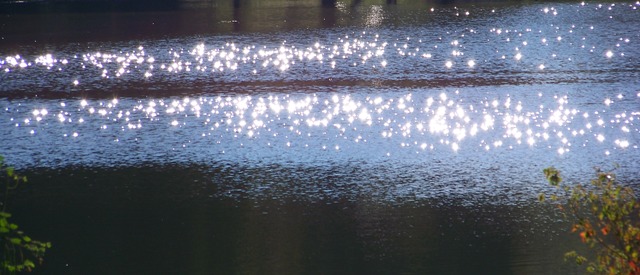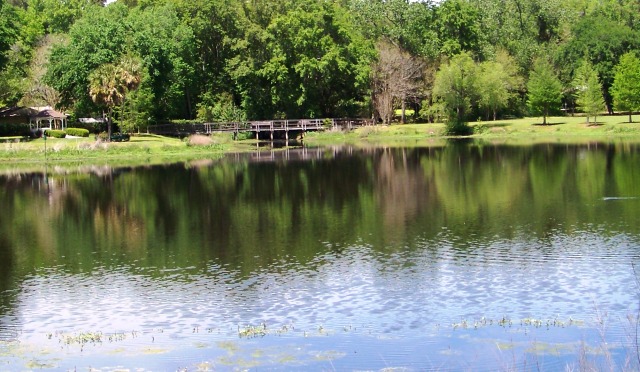I am a big fan of New Year’s Eve neither for the noise nor for the celebratory streamers but as a day and night of reflection. Over the past two decades, the last day of each year has emerged as a major holiday for me.
Often, E.B. White’s essay, “Once More to the Lake,” comes to mind not because I am ever lakeside on the 31st of December but because this final day of the year has become one of “peace, jollity, and goodness” much like White’s childhood summers spent at a Maine lake in many a late August.
For me, New Year’s Eve is “infinitely precious and worth saving” no matter how I have marked the year. I flip through my memories of months as if I were watching the year as a slide presentation, images catching between ceiling and wall. Memories are often served skewed.
More than anything, remembering a year on its last day helps me “enlarge my sense of things” so that my perspective is not confined like water in a glass but broad and open like the lapping waters of a lake. In other words, I become a lake.

Remaining a lake is a lifelong process but the idea has intrigued me since I discovered the story of the Hindu master and his apprentice. Every year I re-tell the story on my blog—at least once—this year, the story seemed appropriate as my last blog post of 2013, a way to enlarge my sense of the year past and open myself to 2014.
As the story goes, a Hindu master grew weary of the constant complaints of his apprentice. No matter the day or the place, the apprentice was not satisfied with his life, how it measured up or how it did not.
One day, the master sent the apprentice to purchase salt. Dutiful but doubtful, the apprentice made the purchase and upon his return, the master told the apprentice to put a handful of salt into a glass of water and take a drink. The apprentice complained that the water tasted bitter.
This was a complaint that pleased the master. He then asked the apprentice to bring the rest of the salt and follow him. After some walking, they came to a lake.

At water’s edge, the master told the apprentice to throw the remaining salt into the freshwater lake. Then, the master told the apprentice to take a drink from the lake. The apprentice said the water tasted fresh. Again, the master was pleased.
The pain of life is pure salt; no more, no less. The amount of pain remains…exactly the same. But the amount of bitterness we taste depends on the container we put the pain in. Enlarge your sense of things. Stop being a glass. Become a lake.
(Mark Nepo’s Book of Awakening)
The story of the Hindu master and the apprentice frames all my New Year’s Eve reflections. Some years are larger than others, and it is true that as I age, I find life less bitter. Perhaps it is that I drink from life with less expectation and with more curiosity. I like to think so.
I do not have the opportunity to drink from a lake so I sip saltwater from a glass. The sting of the salt reminds me how easy it is to savor only the bitter. It is then that I enlarge my sense of things for the mere experience of life is “infinitely precious and worth saving.”
Happy belated New Years, K. I’ve heard this story before, but I never thought about being a lake. Love the Nepo quotation. Seems to me that meditation opens us to an infinite supply of water, or as Rich Hanson says “abide as the stream.” When we are the stream, then we engulf the bitterness. Trying to stay in this flow this year. So grateful to have met you in 2013 and can’t wait to see what 2014 brings for us. {{{hugs}}}} Kozo
LikeLike
Hello my friend and Happy New Year. Loved this post and although I had heard the salt water story (through my readings) before, it was a great reminder. I’ve always loved that lesson and it seems a fitting message for this new year ahead. People are quick to complain about getting older but I’m with you, the older I get the less I hang on to negative. Great post, as always and it is good to be back in the fold after my sidetrack with Autumn. 🙂
LikeLike
Great to see you here. Have been wondering about you and Autumn. I have come to equate growing older with broadening my perspective yet I cannot help but wonder what becoming a lake might have meant decades ago. No regrets, just wondering. Happy New Year, my friend!
Karen
LikeLike
Lovely essay and photos, Karen. I’ve made a note to look up the E.B. White essay. Happy Reflecting and Happy New Year.
LikeLike
I think you will enjoy the E.B. White essay, Cynthia. It was a favorite to teach as well for the writing is crisp and fresh, the usual White wording. Happy New Year to you!
Karen
LikeLike
Karen, I really love this story. You always have a new way for me to think of parts of my life, but I had never imagined becoming a lake. This will stay with me, as sometimes the glass is just too darned salty. Have a happy and healthy 2014 my friend! With love, Dona
LikeLike
A most prosperous and Happy New Year to you as well, Dona! Like you, I have found the glass water just too salty.
Karen
LikeLike
I love this story. I love the quiet of winter nights, and often walk (or ski) my thoughts off, leaving tracks that are hardly noticed the next day… but my heart always notices.
LikeLike
It is a wonderful story, especially, as you say, on winter nights. Love the image of tracks blending into the next day. Thanks for stopping by.
Karen
LikeLike
What a beautiful post, Karen! I particularly love this line: “Memories are often served skewed.” Indeed!
I am grateful to you for the image of remembering on the last day of the year being a chance to enlarge my sense of things. This image, and the stories you tell to go with it, are helpful to me as I consider my own year. Thank you!
LikeLike
Thanks so much, Kenetha. You and I often swap stories on our blogs, inadvertently, yet you broaden my perspective. A most Happy New Year to you!
Karen
LikeLike
Thank you, as always, for sharing your thoughts – a wonderful and positive insight! It had never occurred to me that it’s possible to dilute the immediacy of the condition by broadening the view – but you’re quite right.
All the very best for the New Year period, and here’s to a great 2014.
LikeLike
Since I first discovered that story, I have learned that “enlarging one’s sense of things” is imminently practical in almost every situation. As the Tao says, “simplicity, patience, compassion” are tools always at hand. Thanks so much, Matthew, and a marvelous 2014 to you!
Karen
LikeLike
Such a deep and thoughtful post! I’d never heard that story, but it certainly captured the importance of both the thoughts we allow to fill our minds and the words we expel into the world. I’m so glad August McLaughlin chose to share your blog at my little blog share party today. You’ve definitely been added to my must read for inspiration list. If you can think of another blogger who could use a little TLC, please feel free to stop by and leave a link to their blog…and to check out the ones others have shared. Happy New Year!
LikeLike
Thanks so much for stopping by and what a great idea about spreading a little blog love. Happy New Year to you!
Karen
LikeLike
Such a wonderful post. I put a link to it on the post I wrote today. As often is the case, you and I, each in the solitude of her own mind, comes to the same conclusion. No matter how we express it, the joyous embrace of life is the subject.
LikeLike
I was just in the process of adding your post to mine when I saw your comment! Adrian and I both post weekly on Sundays. Quite often, she and I consider similar subjects. We wend our separate ways to a conclusion where we often find one another. We give each other a cyber hug to hold us until the next time we are able to physically sit with one another for tea and talk. This extraordinary friendship is one of my greatest treasures and one that began in writing. Here is Adrian’s post, It Takes Life to Love Life. I cannot imagine my Sundays without a stop at slowdancejournal.wordpress.com.
Karen
LikeLike
This is one of my favourites of your retellings, Karen. So simple and yet so deep. It has been a strange year and I think this will be a good approach for me at the year’s end. Best wishes for another year’s turning, Diana.
LikeLike
Thank you, Diana! Truly, it is a story that I come to time and again for just as you say, it is simple and so possible. The story also reminds me of the three tools that Lao Tzu advises that we keep with us: simplicity, patience, and compassion. The year has required a lot of you; in general, the year seemed rugged, lots of starts and stops. We will see what 2014 provides, Diana, and the best to you and yours.
Karen
LikeLike